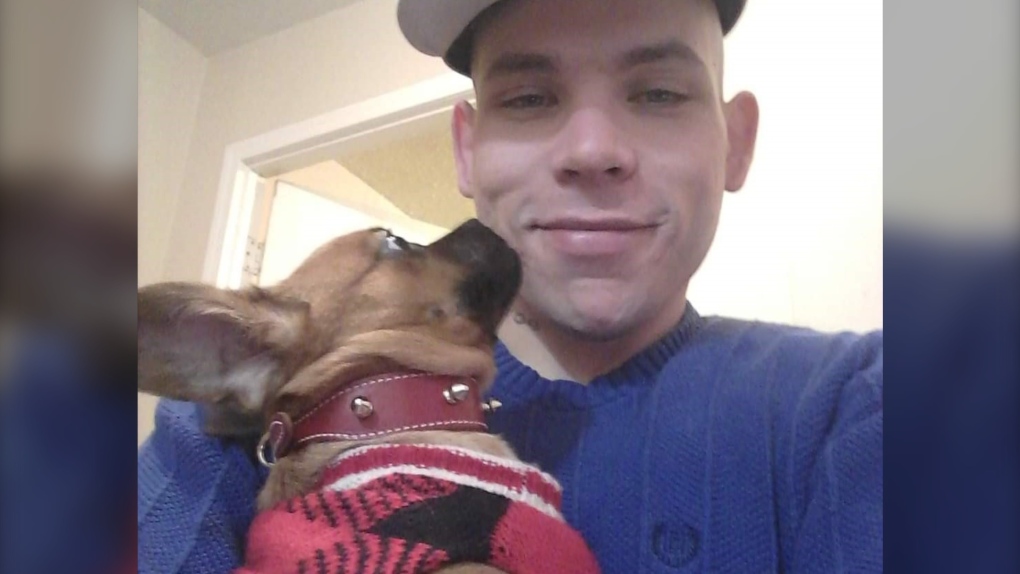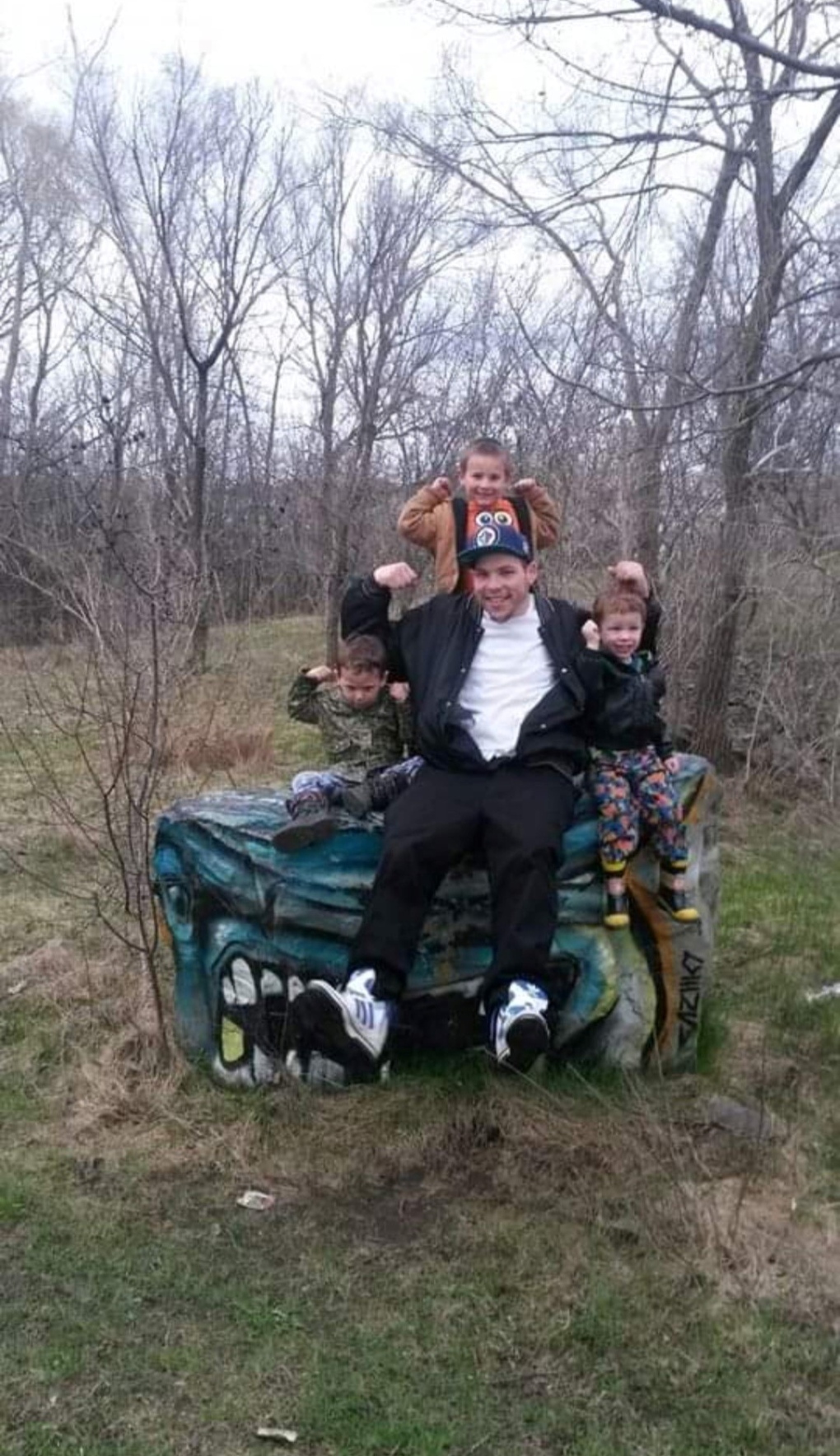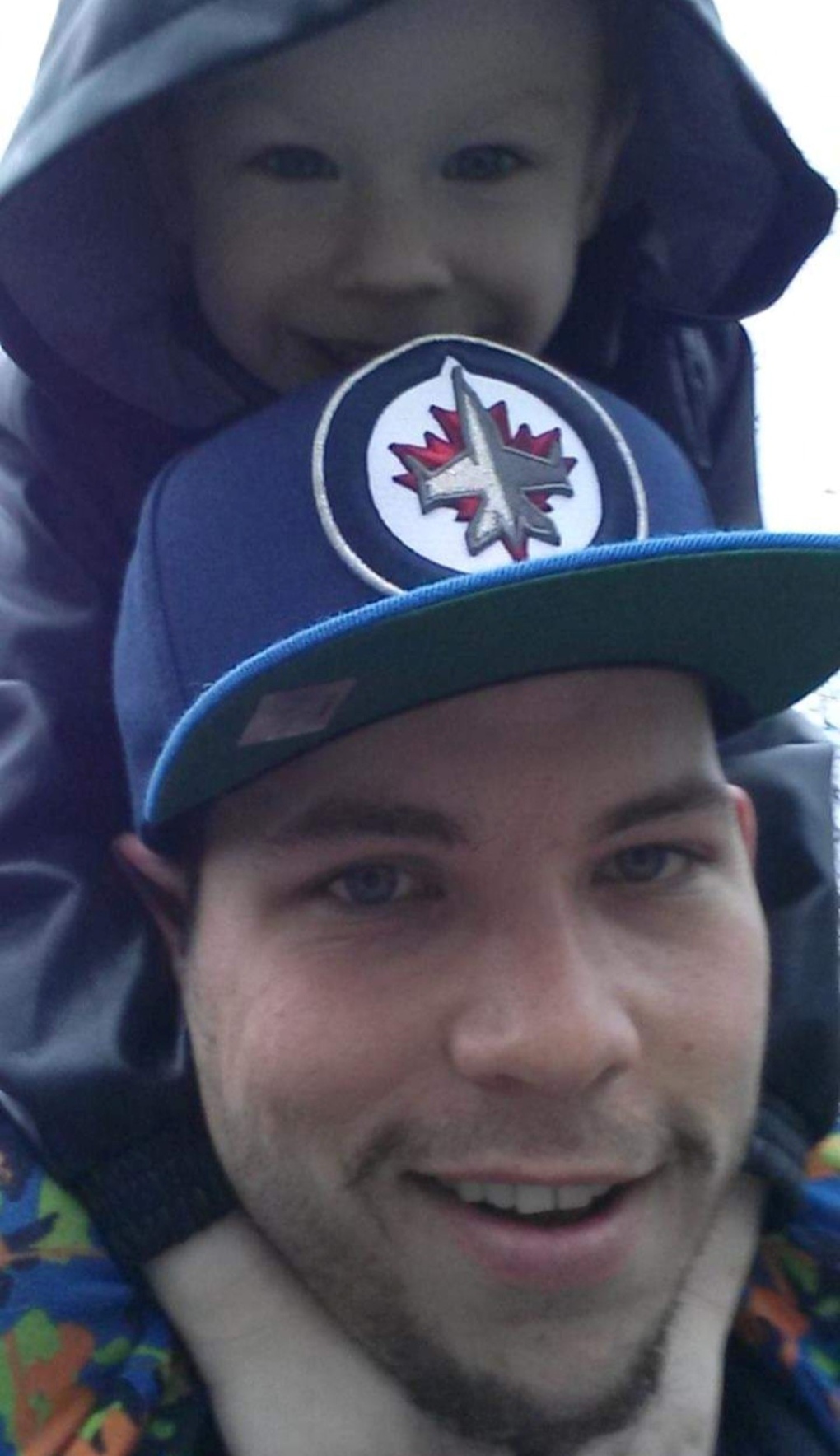'Douglas deserved a lot more': Sister questions adequacy of medical care for inmate who died in B.C. prison
 Douglas Martin was in the third year of a four-year sentence at the Pacific Institution in B.C.'s Fraser Valley when he died.
Douglas Martin was in the third year of a four-year sentence at the Pacific Institution in B.C.'s Fraser Valley when he died.
Douglas Martin was about a month away from freedom when he died.
An inmate at Pacific Institution in B.C.'s Fraser Valley, the 35-year-old was in the third year of a four-year sentence for dangerous driving, driving while prohibited and fleeing from police. He was due to be released on parole on Aug. 17.
His sister Danielle, who also goes by Coco, was looking forward to welcoming him home. His children, his siblings and his father were all together in B.C. for the first time, and Douglas' release was supposed to be the highlight of their summer.
"We were all really hoping that Doug would be able to kind of get out and have that kind of family dynamic that he's always wanted, that he's always deserved," Danielle said.
"It is really tragic that we've all kind of come together – my sister's here, my older brother's here – we've never had that family dynamic growing up, and so it was like Douglas was about to start his life again."
He didn't get the chance because, on the morning of July 14, he collapsed outside the prison's health unit and could not be revived.
Now, Danielle and the rest of his grieving family are looking for answers and accountability.
'THEY WEREN'T TAKING HIM SERIOUSLY'
Danielle first learned of her brother's death via a call from another inmate at the prison. About an hour later, she called the facility, which confirmed Douglas had died.
She told CTV News the person she spoke to said Douglas collapsed around 8:30 a.m., and the prison's health-care staff "worked on him for over an hour."
She was also told that a doctor was present when her brother died.
A few days later, the inmate called back, disputing that assertion.
"He informed me that Douglas had went to the health unit every day that week requesting to be seen by a doctor, that he was having a lot of troubles walking, that he was having a really hard time breathing and was going into panic attacks," Danielle said.
"When he told me this, I went back to my birthday, which was July 11. I was on the phone with Douglas and he had said something was seriously wrong, that he was having these really bad panic attacks, and even while he was on the phone with me he was finding it hard to catch his breath."
The inmate said Douglas had not been seen by a doctor, despite his repeated requests.
"He goes, 'Coco, they weren't taking him seriously,''" Danielle said.
 Douglas Martin was about a month away from being released from prison when he died.
Douglas Martin was about a month away from being released from prison when he died.
CORONER INVESTIGATING CAUSE OF DEATH
Asked to respond to the family's concerns, the Correctional Service of Canada declined to address them directly, telling CTV News in a written statement that it is "unable to disclose personal information about an offender."
"Douglas Martin appears to have died from natural causes," the CSC said. "However, as per process, the coroner determines the exact cause of death. As with any death, we contacted both the police and coroner."
The BC Coroners Service said its investigation is ongoing and no further information can be released until a coroner's report is completed, a process that currently takes 16 months, on average.
Danielle Martin said she spoke to the coroner "a couple days" after her brother's death.
"They had said that Doug had blood clots in his leg, in his lungs and in his arteries," she said. "I believe he had a couple hernias, not that that contributed to his death, but his heart was abnormally large, as well as his liver."
She described her brother as "relatively healthy," before his latest incarceration began. He had no previous heart, liver or lung problems.
While the coroners service has not yet shared an official cause of death, it's clear to Danielle that the inmate's allegation that Douglas was denied treatment warrants investigation.
"Even if you are incarcerated, that should still be something that you are entitled to, is proper health care and being seen by medical professionals," she said.
 Danielle Martin said her brother Douglas was "relatively healthy" before his latest incarceration began.
Danielle Martin said her brother Douglas was "relatively healthy" before his latest incarceration began.
In its statement, the CSC noted that Pacific Institution is a regional treatment centre within the federal prison system and "a designated and accredited hospital."
The correctional service said it provides essential health services on-site and collaborates with "community provincial specialty clinics and hospitals as needed" for services it cannot provide.
"There are several ways that health services may be accessed for incarcerated individuals within CSC," the service said. "Individuals may initiate access themselves by submitting a request for health services. CSC staff can also refer individuals to health services. All requests are reviewed and prioritized according to urgency, with services ultimately provided by a health care provider."
Danielle said she's not sure whether her brother's death could've been prevented, but she doesn't believe he got the medical attention he needed. If he had, she said, she thinks he could have at least had more time.
"I just feel like it could've postponed him passing," she said. "It would've given his family a chance to be there by his side and have those moments with him as opposed to him, you know, dying in prison by himself and feeling like no one was there for him and that he wasn't actually being heard."
'DOUGLAS DESERVED A LOT MORE IN LIFE'
Danielle said her brother was "very loving" and "very compassionate," despite a traumatic childhood.
She told CTV News she remembers him stealing money from adults who were passed out in their home so that he could go buy milk and cereal for his siblings.
Danielle and Douglas spent most of their childhoods in foster care, she said, adding that the two of them were typically together, while other siblings were in other foster homes.
Their mother, a residential school survivor, lived in Winnipeg, and Douglas ran away multiple times as a teenager to find her.
Eventually, he went to live with her, Danielle said, describing her mother as "really involved and active in her addictions."
In Winnipeg, Douglas saw his criminal record begin in earnest. His sister characterized his crimes as "really petty stuff," including stealing cars and driving without a licence.
"He was really just in survival mode the majority of his life," Danielle said.
She said she and Douglas grew up largely cut off from their Cross Lake Cree heritage, but her brother had reconnected with his culture in prison.
Douglas had "put in a lot of work" during his latest incarceration, she said, and she thought he was on an encouraging path, one that – with support – could have seen him turn his life around.
"It's very tragic because Douglas deserved a lot more in life than what he got," she said.
CTVNews.ca Top Stories

WATCH LIVE Bank of Canada cuts interest rate, signals more to come if inflation keeps dropping
The Bank of Canada has decreased its policy interest rate for the second consecutive time and signalled more cuts are coming if inflation continues to ease.
2 Canadians being 'sent home immediately,' removed from Olympic team after drone incident
An analyst and an assistant coach with Canada Soccer are being removed from the Canadian Olympic Team and 'sent home immediately,' according to the Canadian Olympic Committee.
Wildfire north of Calgary prompts evacuation alert, highway closures
A wildfire is prompting evacuations and highway closures north of Calgary.
EXCLUSIVE Canadian company at the centre of alleged international pyramid scheme: authorities
Foreign governments say hundreds of thousands of people in Bangladesh and Sri Lanka lost savings to a company headquartered in Canada. This investigation from the IJF and CTV News shines a new light on how Canadian shell companies and registries were used to pull off the scheme.
Wildfire evacuees ordered to leave Jasper find relief after long journey to safety
Some wildfire evacuees who were trapped in traffic for hours while leaving Jasper National Park say they are feeling relieved to have found safety.
Pennsylvania state police commissioner reveals stunning details about Trump shooting
A local law enforcement commissioner revealed during a House Homeland Security hearing on Tuesday stunning new details about the security failures that led to the near assassination of Donald Trump, raising more questions for the embattled U.S. Secret Service.
Host city revealed for 2034 Winter Olympic Games
Salt Lake City was awarded the 2034 Winter Olympic Games on Wednesday following a vote of the International Olympic Committee.
Plane crashes just after takeoff from Nepal's capital, killing 18 people. Pilot is lone survivor
A plane crashed Wednesday just after taking off from Nepal’s capital, killing 18 people and injuring a pilot who was the lone survivor.
Laws that could get Canadians in trouble in tourism hotspots
There are some laws in popular tourist destinations around the world that could land Canadian travellers in mild-to-serious trouble if they're not careful. Don't let these local laws land you in hot water during your next vacation abroad.
































